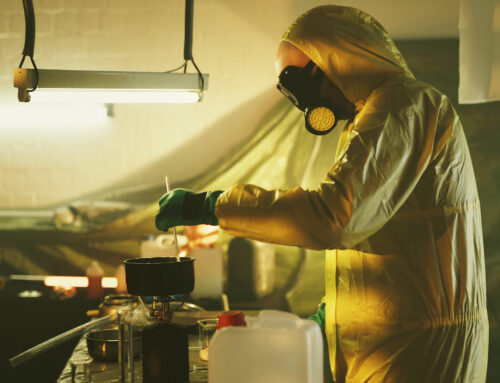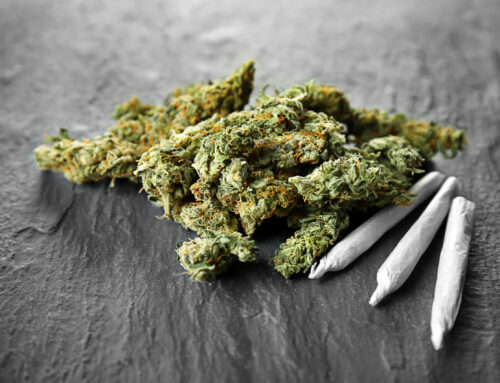People have been drinking to excess ever since humankind first discovered fermentation. We all know the many negative outcomes of alcohol addiction — but when drugs are added to the mix, all bets are off. When combined with alcohol, legal and illegal drugs alike often lead to unpredictable consequences.
This Achieve Wellness and Recovery article dives into the chaotic world of polysubstance abuse. Find out what can happen when alcohol and other drugs are combined.
The Unpredictability of Alcohol and Drug Combinations
It’s not unusual for people to combine alcohol and drugs—especially people with substance use disorders. A person who consumes alcohol responsibly is very unlikely to deliberately mix alcohol with another drug, aside from caffeine or something relatively inert like aspirin or ibuprofen.
Yet, In 2021, an estimated 1,692,265 emergency room visits were related to alcohol and at least one other substance. About 20% of these were accidental and involved alcohol and prescription medications. The majority, however, were a result of people knowingly mixing alcohol and drugs.
The number of ER visits hints at the nature of the problem. When drugs are combined, the results aren’t simply cumulative effects. They can be wildly unpredictable. In the case of stimulants, people often drink more than they would otherwise, leading to alcohol poisoning, among others. When depressants like opioids or benzos are combined with alcohol, the risk of fatal respiratory arrest climbs substantially.
The consequences of unpredictable drug and alcohol combinations include:
- Alcohol poisoning or overdose (when using stimulants)
- Respiratory arrest (usually when using depressants)
- Increased risk of liver, brain, and heart damage
- Lower inhibitions leading to poor decision-making
- Increased likelihood of becoming a victim or perpetrator of sexual assault
Combining Stimulants or Cocaine and Alcohol
When a person drinks alcohol and takes Adderall or another stimulant, an unusual paradoxical set of effects ensues. Alcohol acts primarily as a CNS depressant. Drinking slows down your breathing and heart rate, delays reaction time, and lowers inhibitions. Stimulants, on the other hand, sharpen your responses and make you more alert.
This is part of the reason why mixing alcohol and cocaine or speed is so popular. People want to “keep the party going.” The frightening part is that the effects of stimulants make it easier for a person to drink much more than they would otherwise.
Stimulants and alcohol together also make violence and irresponsible behavior more likely. The widespread problems caused by caffeinated Buckfast Tonic Wine in Scotland are a prime example.
The stimulants can make them underestimate how drunk they are. But make no mistake, coffee does not “sober you up,” and neither does Adderall or cocaine. You’re just as drunk as you were — only more alert and fired up. This is often a recipe for disaster. It leads to alcohol poisoning and even fatal overdose.
What Happens When You Mix Alcohol and Cocaine?
Lots of people know that booze and coke are a popular combo, but few know the specific details. When they meet inside the body, alcohol, and cocaine metabolize to form a third drug called cocaethylene that exists nowhere else in nature. Cocaethylene creates intense euphoria.
This is the biggest reason why some people crave cocaine when they’re drinking. You may know people who never use cocaine at any other time, but once they get a few drinks in them, they have an insatiable desire for the stuff. Cocaethylene addiction is the reason why. Cocaethylene also happens to be especially toxic to the heart, brain, and liver, and it raises the chances of respiratory arrest.
Some dangers of combining stimulants or cocaine with alcohol:
- Higher likelihood of drinking more and alcohol poisoning or OD.
- Increased chance of respiratory arrests (with cocaethylene present)
- Higher likelihood of injury, criminal behavior, or violence
Mixing Alcohol and Benzos or Opioids
Whether you are taking Xanax or Hydrocodone as prescribed or you are misusing it —- if you mix them with alcohol, you’re potentially taking your life in your hands. We’re not exaggerating for dramatic effect here. Alcohol is the most common drug combined with opioids or benzodiazepines that leads to overdose deaths.
We don’t have exact figures breaking down how many OD deaths involved both alcohol and heroin, another opioid, or benzo. But we do know that we have almost 300 deaths due to OD every day in America. That’s more than 100,000 drug overdose deaths in the U.S. annually—that’s the size of a small city.
Drinking alcohol after using heroin, oxycodone, or Xanax is less common. More often than not, what happens is people are already drinking and are less inhibited when they introduce opioids or a benzo like Klonopin to the mix. What happens from there depends on many variables, but the odds that the person will nod off and never wake up again are enough to make anyone think twice about doing this. Or at least they should be.
In addition to the risks outlined above, most prescription opioids in the U.S. are combined with acetaminophen (Tylenol), which can cause permanent liver damage in higher doses by itself. When combined with excessive alcohol consumption, the chances of irreversible damage done to the liver are worryingly high.
Risks associated with taking opioids or benzodiazepines with alcohol:
- Much higher risk of respiratory arrest and death
- Markedly increased chances of damage to the liver and other organs
- Increased risk of physical injury or violence.
- Increased risk of fatal overdose.
Overcome Addiction at Achieve Wellness & Recovery
If you or someone you love is battling substance abuse — Achieve Wellness & Recovery can help. It’s never too soon to get help for alcoholism or an addiction to a controlled substance, but if you wait, it may be too late. Recovery from the seemingly hopeless state of mind and body that addiction brings is available to everyone who wants it.
Make no mistake: sobriety is hard work, and it calls for a lifetime of commitment to practicing the principles of recovery. However, we have seen more than a few miracles in the years that we have been helping people get sober one day at a time. No one is ever too far gone to recover. It simply comes down to having enough willingness to try and just enough courage to hope.
Let us help you or the person you love build a life free of drugs and alcohol.
Give us a call at (833) 680-0142
You can also click here to find out how our program can work with your insurance.








